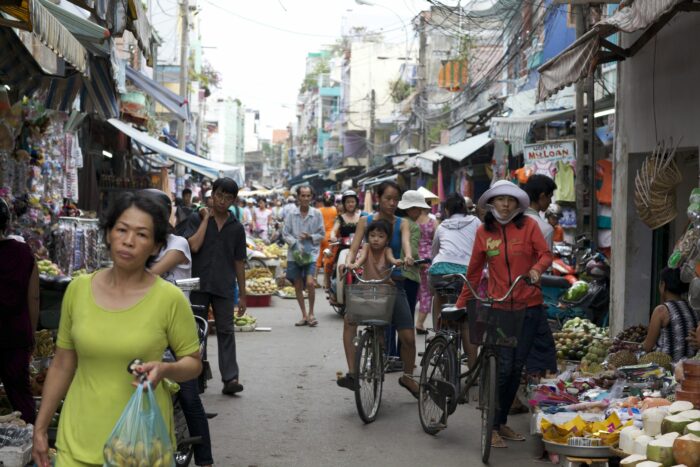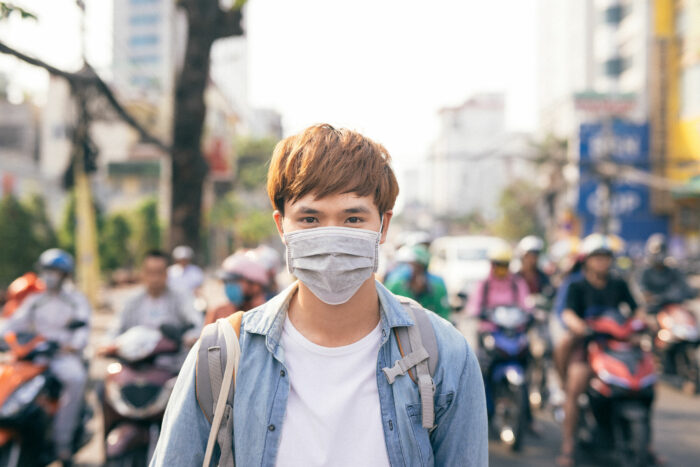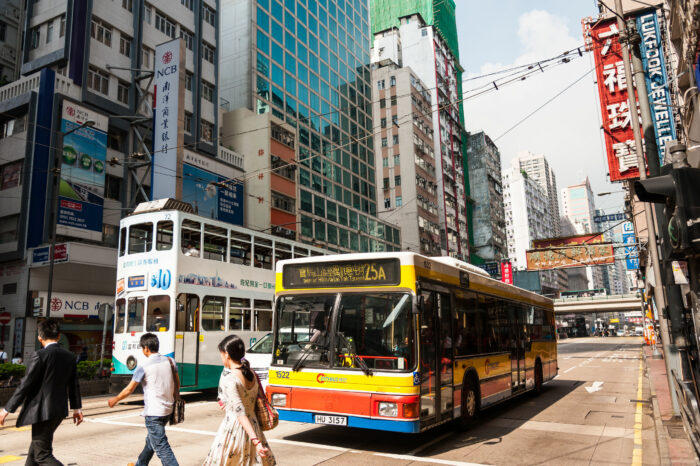South Korea’s revision of law leaves labourers still vulnerable

The latest revision of the Workplace Harassment Prevention Law (WHPL) fails to protect subcontractors and labourers facing harassment.
Philippines extends lockdown in Manila as COVID-19 cases spike

President Rodrigo Duterte has extended a strict lockdown in Manila and adjacent provinces by at least a week.
Japan approves law raising retirement age to 70

The Cabinet has approved bills requiring companies to retain their workers until they are 70 years old, effectively raising the retirement age from 65 to 70.
India postpones implementation of new labour codes

The central government has postponed the implementation of four new labour codes originally scheduled to be rolled out on April 1.
Google prioritises in-person collaboration with office reopening

Google is reopening some of its US offices with employees returning to the office on a voluntary basis from April.
Thailand sets up pension fund to support ageing population

The Cabinet has approved the setting up of the National Pension Fund (NPF), a new mandatory retirement savings scheme for formal sector workers.
Start-ups in Singapore attracted US$4 billion funding in 2020

Despite challenges posed by the pandemic last year, start-ups in the country attracted S$5.5 billion (US$4 billion) in funding.
New Zealand raises minimum wage from April 1

Beginning April 1, the minimum hourly wage in the country will increase to NZ$20 (US$14) from the current NZ$18.9 (US$13.2).
48% of wage workers in South Korea willing to be vaccinated

Less than half of salaried workers surveyed are willing to be inoculated against the coronavirus, as uncertainty remains over potential side effects.
Innovative Startup Act helps new entrepreneurs in the Philippines

The inception of Republic Act 11337 will help entrepreneurs bring their innovative ideas to fruition by providing them with government support.
Malaysia amending employment law to cater for WFH

The government is proposing a change to the current employment law to support a work-from-home (WFH) culture even in the post-pandemic era.
Taiwan approves bill for workers’ accident insurance in small companies

The bill proposes that companies employing less than five workers must insure their staff for occupational accidents.
Tokyo continues with earlier closing times for F&B businesses

Tokyo and neighbouring prefectures are mandating food-and-beverage businesses to close earlier to reduce the risk of a rebound of pandemic cases.
1 million pandemic-displaced persons still jobless in South Korea

In February, out of the 1.35 million persons officially unemployed, 999,000 had lost their jobs due to the pandemic.
Philippine senator files bill for 335-billion-peso stimulus package

Senator Manny Pacquiao has filed a bill calling for a 335-billion-peso (US$6.9 billion) stimulus package in the Senate.
Women trade union group in Malaysia calls for 98 days of maternity leave

Wanita Industrial Malaysia (WIM), a trade union coalition representing female workers, has urged the government to mandate 98 days of maternity leave.
Workplace redesign on the cards for Singapore’s financial institutions

To prepare for workplaces in a post-COVID era, banks and financial institutions are redesigning their workplaces and adopting flexible work arrangements.
Cambodia to launch job website to raise employment level

The Ministry of Labour is launching WORKNET, a new job website designed to help Cambodians find jobs amid the pandemic.
Japan plans to increase minimum hourly wages to 1,000 yen

Prime minister Yoshihide Suga has said he targets to raise the country’s average minimum hourly wage to 1,000 yen (US$9.2) as soon as possible.
Philippines launches online information and comms programme

The Department of Labor and Employment (DOLE) has launched a Q&A educational video series – Sagot Ka Ng DOLE.
OECD urges Indonesia to equip workers with digital skills

A new survey by the OECD recommends that the country step up its vocational education and adult training, with a focus on digital skills.
Record high number of jobseekers entering workforce in South Korea

The number of people preparing for employment has hit a record high last month in a pandemic-affected labour market.
Australia’s jobless rate dips to 5.8% to pre-pandemic levels

The unemployment rate fell in February to pre-pandemic levels amid the rollout of vaccination and fiscal stimulus stimulating the economy.
Vietnam budgets US$260 million to train workers prone to unemployment

To upskill workers likely to lose their jobs due to COVID-19, the labour ministry has proposed a programme to train them.
Japanese employers offer lowest salary increase in 8 years

Companies are offering the lowest pay rises in eight years – signaling an end to former prime minister Shinzo Abe’s stimulus policies.
China’s unemployment rate at 13.1% for younger labour population

The jobless rate for those 16 to 24 years old was 13.1% in February, more than double the national urban unemployment rate of 5.5%.
Unemployment benefit surpasses 1 trillion won in South Korea

South Korea’s unemployment allowance payment hit a five-month high in February, surpassing 1 trillion won (US$884 million) again.
Hong Kong’s unemployment rate highest since 2004

Hong Kong’s jobless rate climbed to 7.2% in the December-to-February period, up 0.2 percentage points from the November-to-January period.
New wage code in India to change salary structures

Employees, especially those with high allowances, are likely to see a major change in their salary structures if the new wage code kicks in from April 1.
China plans to raise retirement age in phases

Under the country’s five-year plan, the retirement age will be raised in a “phased manner”, said China’s Ministry of Human Resources and Social Security.

